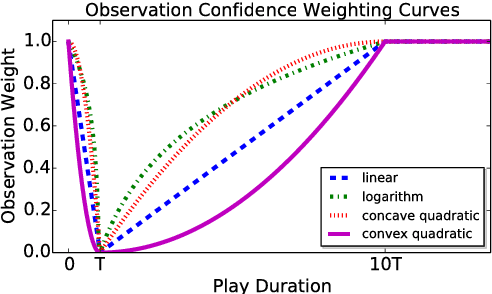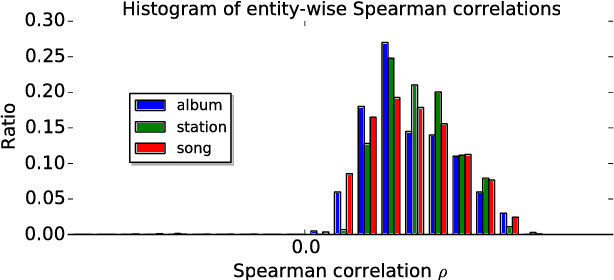Play Duration based User-Entity Affinity Modeling in Spoken Dialog System
Paper and Code
Jun 29, 2018



Multimedia streaming services over spoken dialog systems have become ubiquitous. User-entity affinity modeling is critical for the system to understand and disambiguate user intents and personalize user experiences. However, fully voice-based interaction demands quantification of novel behavioral cues to determine user affinities. In this work, we propose using play duration cues to learn a matrix factorization based collaborative filtering model. We first binarize play durations to obtain implicit positive and negative affinity labels. The Bayesian Personalized Ranking objective and learning algorithm are employed in our low-rank matrix factorization approach. To cope with uncertainties in the implicit affinity labels, we propose to apply a weighting function that emphasizes the importance of high confidence samples. Based on a large-scale database of Alexa music service records, we evaluate the affinity models by computing Spearman correlation between play durations and predicted affinities. Comparing different data utilizations and weighting functions, we find that employing both positive and negative affinity samples with a convex weighting function yields the best performance. Further analysis demonstrates the model's effectiveness on individual entity level and provides insights on the temporal dynamics of observed affinities.
 Add to Chrome
Add to Chrome Add to Firefox
Add to Firefox Add to Edge
Add to Edge